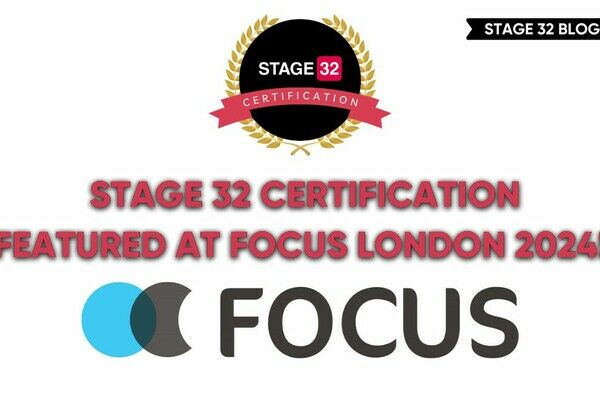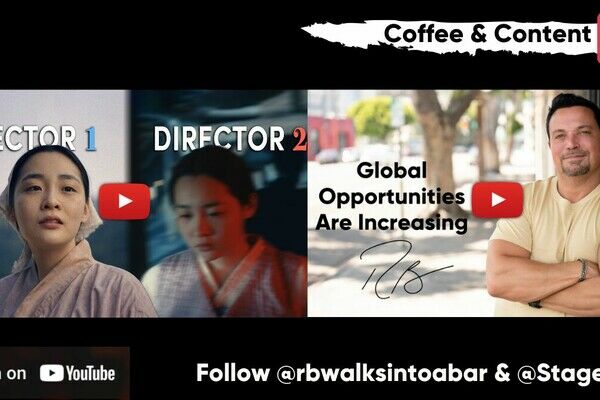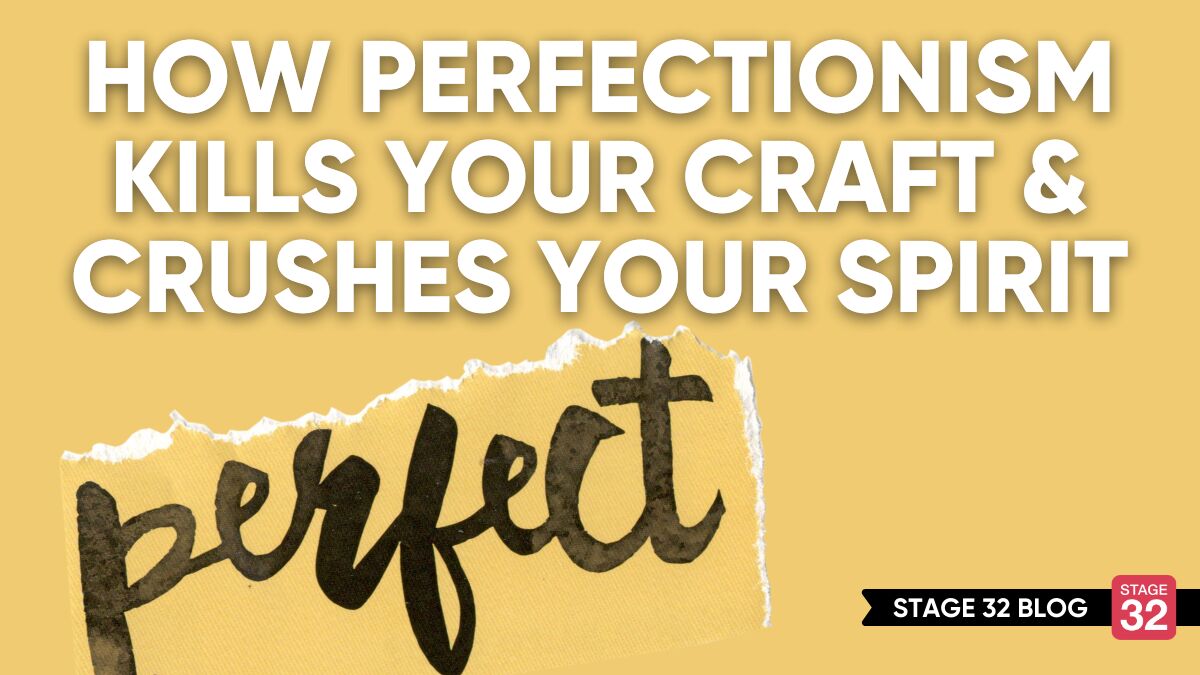How Perfectionism Kills Your Craft & Crushes Your Spirit
At age 17, my artist-father was taught a mantra. ‘Near enough isn’t good enough. It has to be perfect.’ So he slaved for his mentor, re-doing work over and over again until one day, the mentor was moved to tears and whispered; ‘now it’s perfect. And that’s near enough.’
But the damage was done. Over 60 years of painting, dad couldn’t bring himself to have an exhibition. Nothing was perfect. It robbed him of so much joy and satisfaction and held him back from moving forward in life.
I inherited my dad’s perfectionism. It’s a fear of disapproval or failure so one never quite finishes or feels satisfied with the results. It taught me how to hang on which is great for commitment but then I had to learn how to let go.
As a filmmaker and a scriptwriter, perfectionism can make a person unpleasant to work with, creatively crushing colleagues in a crew and make someone unreliable when it comes to deadlines. The best training I had to learn to meet deadlines and transcend perfectionism was as a young print journalist then as a TV news reporter. I learned the meaning of ‘deadline’. It’s a line you can’t cross or you’re dead.
If perfectionism is plaguing your creative process, ask yourself questions such as:
Is the 51st shade of grey more perfect than the previous 50? Will tinkering with this one detail make an important difference to the audience understanding and loving your screen story more?
If the answer is no – let it go.
Perfectionism is defined as ‘refusal to accept any standard short of perfect’. It disguises itself as your best friend with the utmost professional integrity but instead, it gaslights you by adding anxiety and fostering obsession. Perfection is a subjective interpretation and an ideal. It’s great to imagine and strive for it but 2 other skills are more achievable and not based on talent. They’re choices and decisions we make about who we are and how we work.

Accuracy & Excellence
“Striving for excellence motivates you; striving for perfection is demoralizing.” Dr Harriet Braiker
Accuracy and excellence are more positive skills to develop.
I’m in the final stage of post production on a feature film. It’s a fun and tedious process of getting everything right. Film festival entry deadlines loom large. The clock is ticking. How many times can a film have ‘EXPORT FINAL’ in caps in the file title? Here’s how I do it without descending into the rabbit hole of perfectionism.
The Big Screen
Watch the cut on a big screen with 5.1 surround sound and do several passes. A big theater or cinema screen means no errors can hide.
A pass for your ears is listening for sounds that shouldn’t be there. Another pass is of the mix – are the levels right to convey emotion and add to the vision? I do several passes for spelling and punctuation. Grammar – not so much. I like little phrases and word groupings.
Not everything has to be a perfect sentence with perfect structure. It’s often too clunky and formal in an on-screen context. I needed to consider, measure, check and re-check how quickly and easily audience members could read and understand the words on screen. A pass just for spelling alone meant we were able to see the word ‘ambasssador’ and delete the extra ‘s’.

Fresh Eyes
It’s great to have new eyes on the film cut to offer feedback on pacing as well as proofreading but if there is strict legal confidentiality to observe, how do we freshen up our own eyes?
A now retired production manager and long time friend shared a great solution. She recommends playing the film backwards. Start at the end credits. Then our ears, eyes and brain aren’t in the emotional journey of the narrative. Our brains don’t take as much for granted or as a ‘given’.
This approach forces us to focus on the technical and mechanical aspects of the online output. In my film, a missing vignette was identified. A sound operator's elbow was spotted in a few frames of a shot.
Problem Solving
I mentor emerging filmmakers and help them understand that making films is a process of problem solving. If you love puzzles, you’ll embrace the process. But if you feel anxious when problems arise, you can learn ways of leaning into them instead of leaning back. My film had a duration problem.
Often, there’s a deal in place for post production with final duration being a significant cost determining factor. My film was sitting at around 89 minutes and if I wanted to bring it on budget, it needed to be around 83.
So, the editor and I did a pass where I deleted 6 minutes by focusing on the ‘breaths’ in the film. While I love a narrative to breathe, I had to meet an agreed duration. Sure, I’m not completely happy with moving so quickly off a beat and onto the next but excellence and accuracy trump perfectionism. And meeting a deadline is life and death to me. It’s also about respecting your crew and the interacting film departments as they have deadlines too.

Right at the time of writing this, I’m awaiting the final, final, final cut to check it one last time before final export. But the good news is – it’s not about perfectionism. It’s about accuracy and excellence. The film will be as good as I can make it within the parameters set that allow everyone else to do their jobs according to their parameters and schedule.
Scripts, films, great food and life itself are all about beginnings, middle and endings. Every one of us has our own relationship with each part of that process. Some love starting. Some love finishing. Some love being in the middle when it’s all happening.
Ideally, if you’re a great starter, it’s good to have colleagues who can wrap things up. If you’re a procrastinator who leaves starting things to the last minute - i.e. loading the gun but never pulling the trigger - work with colleagues who can get that part of the production up and running. Play to your strengths and keep honing skills that make you a great colleague.
Perfectionism kills creativity and the satisfaction we all deserve as artists, writers and filmmakers.
Like my dad, don’t wait to have the exhibition until after you’re dead. Meet those deadlines while you’re alive. It’s easier to enjoy them when we’re still here.
ABOUT Renée Brack

Photo Credit: ColourbyKristyPhotography
Renée Brack MCA is a filmmaker and writer who makes stuff and makes stuff up. A graduate of the University of Technology Sydney with a Master of Creative Arts, she lives and works in Australia. Originally from a sleepy beach village then alone in a big city at age 17, she scripted, produced and directed short films, authored books, wrote plays performed on stage and picked up a few awards. Right now, she’s emerging from post production of a feature documentary called Ticketyboo: a Secret in Plain Sight and has a slate of female-centric screen stories in development.
Let's hear your thoughts in the comments below!
Got an idea for a post? Or have you collaborated with Stage 32 members to create a project? We'd love to hear about it. Email Taylor at taylor@stage32.com and let's get your post published!
Please help support your fellow Stage 32ers by sharing this on social. Check out the social media buttons at the top to share on Instagram @stage32 Twitter @stage32 Facebook @stage32 and LinkedIn @stage-32
| 5 Ways to Make Your Own Screenwriting Opportunities |
| 8 Tips to Kick Start Your Acting Career in 2022 |
Search Stage 32 Blog
There are now 3681 blog posts for you to enjoy. Search them all by tags below.
Acting, Advice, Cinematography, Coffee & Content, Composing, Contests, Distribution, Featured, Filmmaking, Financing, Inspirational, Networking, Producing, Screenwriting, Success Stories, Tips, Trending,Relevant Tags
Recommended Articles

Mapping Out a Multi-Season Story Part 2: Where Do You Get Ideas For This Much Story?

The [Ultimate] 5-Step Sound Guide for Great Sound on Set

6 Steps To A Successful Writing Partnership

New Feature: Stage 32 Writers Are Now Spotlighted With Unique Badges!

Stage 32 Certification Welcomes El Paso, Texas!

Stage 32 Certification at Focus London 2024!

Announcing the 10th Annual Short Film Contest

6 Things To Know About Script Legal Research

Happy Thanksgiving From Stage 32: We Are Thankful For YOU






